Institutional information
Published for the very first time in September 2003, Revista Iberoamericana de Ciencia, Tecnología y Sociedad – CTS (in English: Ibero-American Science, Technology and Society Journal – STS) is an open access journal that focuses on achieving a better articulation between science and society in Latin American and Iberian countries, while promoting communication and starting discussions about important subjects within the STS studies. CTS’ approach is regional, and it evaluates and publishes articles received from a plural and interdisciplinary perspective. Along its history, it has published relevant articles from Ibero-American researchers as well as from researchers from several other regions.
CTS is published quarterly, with issue dates in March, July and November. Special editions are published occasionally and considered part of the volume of the year in which they are published.
CTS does not charge any fee for the evaluation and/or publication of the articles sent to its Editorial Secretariat. The journal is part of a greater space of components that allow more direct interactions with its readership. This space is visible in this website, where it is possible to explore sections that display portfolio articles, theses and reference documents, as well as special editions and debate columns where the community is invited to participate with comments and new texts, in a dynamic that grows from the richness that these exchanges generate.
CTS is co-published by the Organization of Ibero-American States for Education, Science and Culture (OEI), the University of Salamanca (Spain), the REDES Center (Argentina), the University of Campinas (Brazil) -through Labjor- and the Lisbon University Institute (Portugal). The Editorial Secretariat operates under the Ibero-American Observatory of Science, Technology and Society (OCTS, due to its initials in Spanish) of OEI.


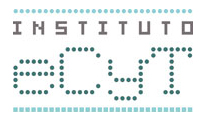
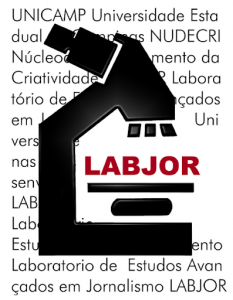

Academic review
The academic articles published in CTS are original and have not been previously published in other journals. They are reviewed through an online referral system that includes both internal and external stages.
After passing a first instance of evaluation, developed by members of the Editorial Board to verify their thematic relevance and adherence to the journal’s formatting instructions, publication ethics and malpractice statement, the articles are referred to external peers who -under a double blind modality- have responsibility for the final decision about its approval or rejection. The peer review includes correction and rewriting phases (if needed).
CTS publishes information about the reviewers who collaborate with the journal year after year. This information appears at the end of the last issue of each volume, in alphabetical order and without any direct relation to the articles evaluated.
Formatting instructions, publication ethics and malpractice statement
To download the journal’s formatting instructions, publication ethics and malpractice statement, follow this link. Once the article has been formatted, it should be sent to http://ojs.revistacts.net/index.php/CTS. For questions or general inquiries, please direct to secretaria@revistacts.net or revistacts@gmail.com.
Gender equality policy
CTS is committed to adopting and maintaining gender policies that promote real equality between women and men.
Authors must avoid gender biases that adopt masculinity as a universal referent, stimulate an exacerbation of biological differences and normalize socially constructed distinctions. The use of a language that does not discriminate, does not reproduce sexist stereotypes and makes all genders visible must be a concern of those who wish to participate in our publication. In order to promote a fairer and more precise use of our languages, articles must avoid discriminatory expressions and specify gender when the communicative situation and the message demand it.
In addition, authors must consider the gender variable in their research work. They must base the composition by gender of the samples gathered, report the gender of the subjects investigated, present the results disaggregated by gender (whenever possible) and take into account the existing nuances within each of the sexes.
Self-archiving and open access policy
Since 2007, CTS provides unrestricted, open and free access to all its content, including the complete files of its quarterly edition and the different products presented through its electronic platform. This decision is based on the belief that offering free access to published materials facilitates a better and greater knowledge exchange.
At the same time, for its quarterly edition, the journal allows institutional and subject repositories, as well as personal websites, to self-archive articles in their postprint or publishing version, immediately after the publication of the final version of each number and with the condition of including a link to the original source.

CTS issues and individual articles are under Creative Commons Attribution 4.0 International license.
Digital conservation policy
CTS is committed to preserving its digital content in the short, medium and long term; to ensuring its authenticity and incorruptibility; to maintaining its accessibility, storage on a secure server and good reading and downloading conditions; and to exercising regular control over the documents hosted on its website.
Databases
Among other databases, CTS is included in: Dialnet, EBSCO, International Bibliography of the Social Sciences (IBSS), Latindex, Catálogo Latindex 2.0 (Latindex Catalogue 2.0), Red de Revistas Científicas de América Latina y el Caribe – REDALYC (Latin American and Caribbean Scientific Journals Network), SciELO, Red Iberoamericana de Innovación y Conocimiento Científico – REDIB (Ibero-American Network of Innovation and Scientific Knowledge), Sello de Calidad de Revistas Científicas Españolas de la Fundación Española para la Ciencia y la Tecnología – FECYT (Quality Seal of Spanish Scientific Journals – FECYT) and Núcleo Básico de Revistas Científicas Argentinas (Basic Core of Argentine Scientific Journals).
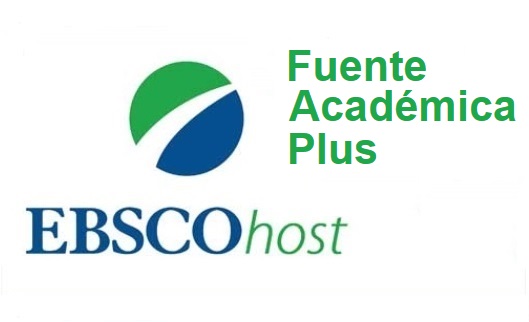

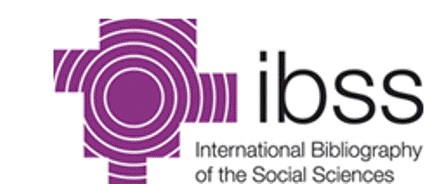



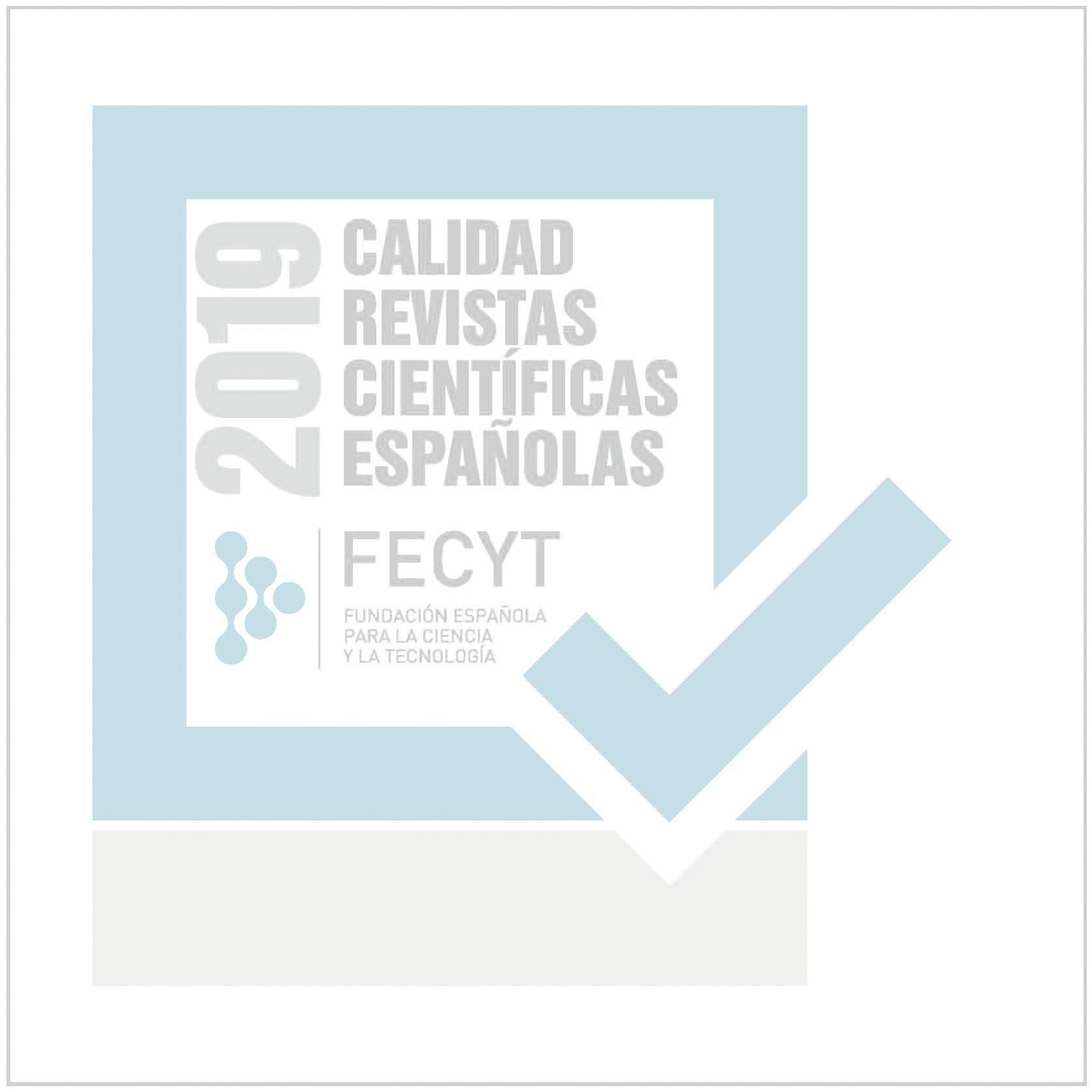




Editorial team
Editorial Management
Editorial Management is exercised on a rotating basis. In the present term, Marta I. González García, from the University of Oviedo, is the main representative of CTS and is responsible for leading the Editorial Board.
Marta I. González García (Spain)
PhD in philosophy from the University of Oviedo and graduate degree in psychology from the same university. She has been a researcher at the Technical University of Budapest, the University of Minnesota, the Complutense University of Madrid and the Institute of Philosophy of the CSIC, as well as a professor of history of science at the Carlos III University of Madrid. She is currently a tenured professor in the Department of Philosophy at the University of Oviedo and a tenured scientist on leave of absence from the Institute of Philosophy of the CSIC. Her main areas of research are science and technology studies, public understanding of science and scientific culture, and gender and science.
Editorial Board
Led by the director in charge, the Editorial Board decides on the appointment and activities carried out by the Editorial Secretariat and the members of the Advisory Committee. It is responsible for the delegation of tasks within the journal. It supervises the activities related to the assignment of reviews, the submission to databases and the integral maintenance of the journal’s quality. Ultimately, it is responsible for the publication or rejection of a manuscript.
Mario Albornoz (Argentina)
CONICET principal researcher. Expert in science, technology and higher education. Professor of philosophy. He was part of the Study Office of the Higher Council for Scientific Research of Spain, a country to which he emigrated for political reasons (1976-1984). Director of regional centers of CONICET in 1985 and Secretary of Science and Technology of the University of Buenos Aires (UBA) (1986 and 1994). Director of the Institute of Social Studies of Science and Technology of the National University of Quilmes (1996-2002). He was a member of the National Advisory Commission for the Improvement of the Quality of Higher Education (2001). He coordinated the Ibero-American Network of Science and Technology Indicators (RICYT) from its creation in 1995 to 2013 and the Ibero-American Observatory of Science, Technology and Society of OEI (2008-2021). He directed the REDES Center (2002-2007) and the master degree in science, technology and innovation at the University General Sarmiento National (UNGS). He also directed the Argentine Center for Scientific and Technological Information (2004-2009). He obtained the Think in Spanish Prize (OEI, 2007) and the Official Cross of the Order of Isabel la Católica (Kingdom of Spain, 2008).
Ana Cuevas Badallo (Spain)
Doctor of Philosophy from the University of the Basque Country. Specialist in the area of philosophy of science and technology and of technological culture. Professor and director of the Department of Philosophy, Logic and Aesthetics at the University of Salamanca.
José Antonio López Cerezo (Spain)
Graduate degree in philosophy and educational sciences from the University of Valencia and PhD in philosophy from the same university (1984). He was a postdoctoral fellow and visiting researcher of the Finnish Ministry of Education at the University of Helsinki (1985-1987), as well as a visiting researcher at the Pennsylvania State University (1991 and 1993) and the Technical University of Budapest (1994 and 1998), and a visiting professor at the University of Havana (1996, 2010) and the University Institute of Lisbon (2014). Since 2006 he has been a professor of logic and philosophy of science in the Department of Philosophy of the University of Oviedo. His specialty are the social studies of science and technology.
Miguel Ángel Quintanilla (Spain)
Founder of the Institute of Science and Technology Studies. Emeritus professor of logic and philosophy of science at the University of Salamanca. His primary lines of research are science and technology philosophy, science and technology social studies, scientific culture, public communication of science, scientific and technological policies. His most important works include: Tecnología: Un enfoque filosófico, FUNDESCO, Madrid, 1988 (Fundesco Essay Award); La utopía racional (in collaboration with Ramón Vargas-Machuca), Espasa Calpe, Madrid, 1989 (Espasa Mañana Essay Award); Ciencia, tecnología y Sociedad (in collaboration with J. M. Sánchez Ron), Santillana, Madrid, 1997; Cultura tecnológica: estudios de ciencia, tecnología y sociedad (in collaboration with Eduardo Aibar), Barcelona, ICE, University of Barcelona, 2002; and Filosofía ciudadana, Trotta, Madrid, 2020. Founder of the EPOC group (Science Policy Studies: 1989-91). He was a member of the International Federation of Philosophical Societies’ Committee and the Scientific Committee of the XXI (Istanbul, 2003) and XXII International Congress of Philosophy (Seoul, 2008). He is a member of the Institut International de Philosophie. From 1982 to 1989 he was a senator at the Spanish Courts. He was first vice-president of the Senate Education Committee, lecturer of the Law of Science (1986) and president of the Joint Congress-Senate Committee of scientific research and technological development. He was general secretary to the Council of Universities (1991-1995) and State secretary for universities and research (2006- 2008). He has received the Grand Cross of the Order of Civil Merit, granted by the Council of Ministers, and the Grand Cross of the Order of Alphonso X the Wise, granted by the Ministry of Education (2008).
Maria de Lurdes Rodrigues (Portugal)
Doctorate (1996) and postdoctoral (2003) in sociology. Professor and researcher at the ISCTE-IUL, Department of Political Science and Public Policies. She has carried out research activities in public policies of education, science and higher education, sociology of the professions and analysis of public policies.
Carlos Vogt (Brazil)
Poet and linguist. He graduated in theory of literature and comparative literature from the University of São Paulo (USP). Master in general linguistics and French stylistics, from the University of Besançon, France, and doctor in science from the State University of Campinas (Unicamp). In 2005 he received the mention of the Order of Scientific Merit of the Presidency of the Republic of Brazil, and the title of doctor honoris causa of the École Normale Supérieure de Lyon, France. Since September 2011, he has held the 23rd chair at the Campinense Academy of Literature. He is an emeritus professor at Unicamp and the coordinator of the Laboratory for Advanced Studies in Journalism (Labjor) of said university, of which he was dean from 1990 to 1994. He has published books, several of them poetry books, and numerous articles and essays in newspapers, magazines and in national and international specialized organizations. He is the general coordinator of publications for the popular science magazine ComCiência, editor-in-chief of Ciência e Cultura, journal of the Brazilian Society for the Progress of Science (SBPC), from 2002 to 2007, and again from 2017 to 2021, and of Innovation, from 2006 to 2007. He was the editorial director of Pré-Univesp , from 2012 to 2016, and the cultural coordinator of the Conrado Wessel Foundation (FCW) from 2007 to 2017. He was president of the Foundation for Support to Research of the State of São Paulo (Fapesp), from 2002 to 2007, secretary of higher education of the State of São Paulo, between 2007 and 2010, and founder and president of the Virtual University Foundation of the State of São Paulo (Univesp), from 2012 to 2016. He was also president of the Scientific and Cultural Council of the Institute for Advanced Studies, Unicamp (IdEA), from 2018 to 2021. In 2020 he received the title of emeritus researcher from the CNPq.
Editorial Secretariat
The Editorial Secretariat functions include planning the publication content, assisting authors in terms of style and format, managing the journal’s web site, controlling assessment processes and communicating with authors. The Editorial Secretariat is also responsible for the location and maintenance of the indexing bases and the issuing of certificates. Its appointment pertains to the Editorial Board.
Manuel Crespo (Argentina)
Member of the Ibero-American Observatory of Science, Technology and Society of OEI. Graduate degree in social communication (Austral University) and master degree in journalism (La Nación-Universidad Di Tella).
Advisory Committee
The members of the Advisory Committee are appointed by the Editorial Board, which also has the power to revoke them. CTS has a body of 28 international experts from 11 Ibero-American countries. Its main functions are supporting the Editorial Board and the Editorial Secretariat in the definition of the contents, providing guidelines for the submission of manuscripts, supervising the evaluation processes and collaborating in the preparation of dossiers.
Norma Blazquez Graf (Mexico)
Psychologist with a master’s degree in science, specialization studies in gender and a doctorate in philosophy. Her academic training has allowed her to approach, from an interdisciplinary approach, the analysis of science through her main line of research -science, technology and gender-, which links feminist theories with philosophical, historical and social studies of science and technology. She has published articles, book chapters and books on these matters. She is a senior researcher at the Center for Interdisciplinary Research in Sciences and Humanities (CEIICH) of the National Autonomous University of Mexico (UNAM), of which she has also been academic secretary and director. She has designed and coordinated seminars, diploma courses and postgraduate courses, directed theses for undergraduate, master’s and doctoral students at UNAM, as well as at other national and foreign institutions. She is a member of the Mexican Academy of Sciences and the National System of Researchers. She coordinates the Mexico Group of the Ibero-American Network of Science, Technology and Gender and is the founding coordinator of the Mexican Network of Science, Technology and Gender.
Fernando Broncano (Spain)
PhD in philosophy, science philosophy professor, University Carlos III of Madrid. His general work field is the concept of rationality in its theoretical, epistemic and practical aspects. From an epistemic perspective, he has worked on the problems in science rationality, its cognitive aspects and the scientific communities’ rationality. In the practical aspects, on the philosophy of technique. His books include: Mundos artificiales (Paidós, 2000), Saber en condiciones (Antonio Machado, 2003), Entre ingenieros y ciudadanos (Montesinos, 2006), La melancolía del ciborg (Herder, 2009), La estrategia del simbionte (Delirio Editorial, 2012), Sujetos en la niebla (Herder, 2013) and Russell, conocimiento y felicidad (Filosofía El País, 2015), among others.
Rosalba Casas (Mexico)
Graduate degree in sociology from UNAM, Mexico, and the following postgraduate degrees: MSc in history and socio-political science, University of Montréal, and DPhil in science and technology policies, University of Sussex. Her main discipline is sociology, with a major in science and technology sociology. Currently, she is a head researcher in social investigations at the UNAM.
María de los Ángeles Erazo Pesántez (Ecuador)
She is a consultant, lecturer, teacher and researcher. She began by combining her passion for physics and mathematics with investigative journalism in Ecuador. She studied at the National Autonomous University of Mexico (UNAM): diploma in philosophical and social studies of science and technology, 2002, and diploma in popularization of science, 2000-2001. She also completed a master’s degree in science, technology and society from the University of Salamanca (USAL), Spain, in 2003. In 2008, she received a master’s degree in medical anthropology from the University of Amsterdam, the Netherlands. At the Universitat Oberta de Catalunya (UOC) she has learned to research, manage and design strategies in social networks, in addition to having obtained a master’s degree in education and ICT (e-learning) in 2021.
Javier Echeverría (Spain)
Graduate degree in philosophy (1970) and graduate degree in mathematics (1970) from the Complutense University of Madrid. PhD in philosophy from the same university (1980) and docteur d’Etat-ès-Lettres et Sciences Humaines from the Paris I University (1980). He has been a professor of logic and philosophy of science at the University of the Basque Country and research professor at the Institute of Philosophy of the CSIC (Madrid). Currently, he is a Ikerbasque research professor at the Sociology 2 Department (University of the Basque Country).
Anna Estany (Spain)
Emeritus professor of philosophy of science at the Autonomous University of Barcelona. Master of arts at Indiana University (United States) and PhD from the University of Barcelona. She has been a visiting scholar at the University of California (San Diego), at the École Normale Supérieure and at the Institut d’Histoire et de Philosophie des Sciences et des Techniques in Paris. Her lines of research are models of scientific change, cognitive approach in philosophy of science and technology, philosophy of design sciences, democratization of theoretical and practical knowledge and philosophy of medicine. Among her most representative works are Models of Scientific Change (1990), Life, Death and Resurrection of Consciousness (1999), co-authored with D. Casacuberta ¿Eureka? the background of a discovery about cancer and molecular genetics (2003), co-author with Rosa M. Herrera Innovation in theoretical and practical knowledge (2016), coordinator with Ángel Puyol of Philosophy of Social Epidemiology (2016), coordinator with Mario Gensollen of Democracia y energía (2019), editor with J. Vallverdú and A. Puyol of Philosophical and methodological debates in public health (2019).
María Elina Estébanez (Argentina)
Sociologist and master’s degree in politics and management of science and technology (University of Buenos Aires). She has studied the linkage and transfer processes between science and society; university science and its R&D systems; and the social impact of STI. She specialized in the application of a gender approach inthe design of non-traditional STI indicators. She has published more than 70 articles, reports, book chapters and other documents on topics of his specialty. She chairs the Grupo Redes Civil Association and is a senior researcher in the CTS Area of the REDES Center, from where the Latin American regional project “Knowledge flows in pandemic contexts” is coordinated. She directs the Sociology of Science chair at the Faculty of Social Sciences, University of Buenos Aires, and directs the project «Sociology of production, dissemination, use and appropriation of knowledge in problems of public interest in contemporary Argentina». As a consultant on issues of her specialty, she has worked for OEI (Valencia Manual), the British Council, the Technopolis Consultant (EU), UNESCO and the IDB. She has provided advice to government agencies in Argentina (Ministry of Science, Technology and Innovation and provincial science and technology agencies) and other countries in the region.
José Luís Garcia (Portugal)
Senior researcher and professor at the Institute of Social Sciences at the University of Lisbon and holds a PhD in Social Sciences from the same university, after undertaking doctoral studies at the University of Oxford with Hermínio Martins and at the London School of Economics with Ulrich Beck. He was a board member of the Society for Philosophy and Technology (2017-2020) and, in Portugal, is currently member of the advisory board of the Cybersecurity Observatory of the National Cybersecurity Centre and director of the Social Sciences Press. In 2018 he was awarded the University of Lisbon’s scientific prize in Social Sciences. He has published, among other works, Media and Portuguese Empire (Palgrave Macmillan, 2017); Pierre Musso and the Network Society: From Saint-Simonianism to the Internet (Springer, 2016) and Jacques Ellul and the Technological Society in 21st Century (Springer, 2013).
Noemí Girbal-Blacha (Argentina)
Professor and doctor in history, National University of La Plata. Emeritus Senior Researcher of the National Council for Scientific and Technical Research (CONICET). Emeritus professor at the National University of Quilmes (UNQ). Argentine agrarian history specialist. Author of 24 books and a hundred and a half articles in national and international journals of recognized scientific level. President of the Argentine Association of Economic History (1996-2001). Director of CONICET for the social sciences and humanities (2001-2008). Vice President of Scientific Affairs of CONICET (2008-2010). Honorary doctorate from the universities of Pau (France, 2007), National of San Juan (2014) and National of Misiones (UNaM) (2017). Research Award of the Argentine Nation for Scientific Career (MINCYT, 2011). Expert of OEI. Member of the National Academy of History. Director of the Convergence Collection of the UNQ Publishing House.
Regina Gusmão (Brazil)
Honorary senior research associate at the Center for Science, Technology, Engineering and Public Policy at University College London (UCL) between 2015 and 2016. She completed her master’s degree and doctorate in science and technology policy at the State University of Campinas (UNICAMP), Brazil, and at the Center Science, Technologie et Société del Conservatoire National des Arts et Métiers (CNAM), France, respectively. Her doctoral thesis was carried out with the support of the Observatoire des Sciences et des Techniques (OST) in Paris, where she developed research and project management activities for almost ten years. Graduated in public administration from Fundação Getúlio Vargas and a law graduate from the University of São Paulo (USP), she has extensive professional and research experience in bodies of the national science, technology and innovation system, with an emphasis on the Technological Research Institute of the State of São Paulo, the Research Support Foundation of the State of São Paulo (FAPESP) and the Center for Management and Strategic Studies, located in Brasilia. From 2009 to 2019, she served as a federal official linked to the Ministry of Science, Technology and Innovation, where she performed coordination and advisory functions in the position of senior analyst in science and technology. Throughout her academic and professional career, she has consolidated an experience in the area of monitoring and evaluation of science, technology and innovation (ST&I) policies and programs, with an emphasis on the production and dissemination of ST&I indicators. In this field, she is a member of international networks of experts sponsored by multilateral cooperation organizations such as OECD, OEI and UNESCO.
Hernán Jaramillo Salazar (Colombia)
Economist with national and international experience, publications and management for over 30 years in the field of knowledge economy and innovation. Honorary professor of the School of Economics at the University of Rosario, Bogotá. Advisor of the rector of the same university in the subjects of science, technology and innovation.
Diego Lawler (Argentina)
PhD in philosophy (University of Salamanca), master degree in science, technology and society (University of Salamanca), MA in philosophy (University of Sussex). Independent researcher of the CONICET, Argentina. Institute of Philosophical Research Argentine Society of Philosophical Analysis (unit associated to the CONICET). Work topics: science and technology philosophy, epistemology, philosophy of mind, philosophy of action and international relations.
Santiago M. López (Spain)
Director of the Institute of Social Studies of Science and Technology of the University of Salamanca. President of the Spanish Association of Economic History and member of the Consolidated Research Unit 333 of the Community of Castilla y León. He has worked in the realization of business stories: Red Eléctrica de España, Iberdrola, Hispano-Suiza, Nestlé, CASA and ENUSA. He has collaborated in the BUCUM-TEMPUS projects of the European Commission, Valuation of Ecosystem Services, Financial Culture in Spain, Exchange and Transfer of Knowledge at the University, and is the IP of the project «Economic Inequality and Innovation», Ministry of Economy and Competitiveness. Latest publications: The effects of Covid-19 in our scientific culture: towards a Social and State Pact for science and innovation (Fundación Alternativas) and Covid-19 in the situation of the gig economy (UNAM).
José Luis Luján (Spain)
Professor of logic and philosophy of science at the Universitat de les Illes Balears. He holds a doctorate in philosophy from the University of Valencia and has been a researcher at the Consejo Superior de Investigaciones Científicas – CSIC (Higher Scientific Research Council).
Marta Macho-Stadler (Spain)
Professor at the University of the Basque Country (UPV/EHU). PhD in mathematics from the Claude Bernard University of Lyon (France). Topology specialist. A large part of her efforts, and in different formats, are aimed at the dissemination of mathematics and the visibility of women who have contributed and continue to contribute to the advancement of science. She is the editor of the blog “Mujeres con Ciencia” of the Chair of Scientific Culture of the UPV/EHU.
Isabel P. Martins (Portugal)
Professor (retired) at the University of Aveiro, Department of Education and Psychology, and member of the Center for Research in Didactics and Technology in the Training of Trainers (CIDTFF). She has been president of the Ibero-American CTS Association in Scientific Education since 2012. She was vice dean of the University of Aveiro (for graduates and scientific affairs) (2004-2010) and coordinator of the CIDTFF (2008-2012). She directed projects of curriculum development and teacher training in Timor-Leste, within the scope of the Portugal-Timor-Leste cooperation. She coordinates funded research projects, referees scientific journals and organizes national and international congresses. Consultant for the Portuguese Ministry of Education and author of chemistry programs for secondary education. Her areas of teaching and research are: science didactics, CTS education, experimental science teaching, teacher training and curriculum development. Scientific production available
here.
Emilio Muñoz Ruiz (Spain)
Ad honorem research professor at the CSIC. Graduate degree and doctorate in pharmacy from the Complutense University of Madrid (1960 and 1964). He was president of the CSIC, secretary of the I+D National Plan, president of the European Interuniversity Association on Society, Science and Technology (ESST) and president of the Gabinete de Biotecnología – GABIOTEC (Biotechnology Cabinet) of the CEFI Foundation. He is a member of the European Molecular Biology Organization (EMBO), of the Swedish Academy of Engineering Sciences (biotechnology area) and a corresponding member of the Royal Academy of Pharmacy. He’s been granted awards by the governments of the Republic of Italy and France; he is a member of the Order of Alphonso X the Wise in the category «Encomienda con Placa» (Commendation with badge). He is the author of hundreds of articles in the field of biochemistry, biotechnology and their connection with social and economic aspects, and science and technology policy.
Jorge Núñez Jover (Cuba)
Graduate degree in chemistry in 1973 and doctorate in philosophy in 1993. Head professor at the University of Havana. Coordinator of the Cuban chair of social studies of science, technology and innovation. Individual member of the Superior Council of FLACSO.
Simone Pallone (Brazil)
Journalist graduated from PUC Campinas, specialist in scientific journalism from the Laboratory of Advanced Studies in Journalism (Labjor), master and doctor in scientific and technological policy from the Department of Scientific and Technological Policy of the Geosciences Institute of Unicamp. Since 2003, she has been a researcher at Labjor, at the Center for the Development of Creativity (Unicamp). Professor in the specialization courses in scientific journalism and in the master’s degree in scientific and cultural dissemination, both linked to Labjor. Coordinator of the scientific podcast «Oxígeno». She is the editorial director of the Institute for the Development of Journalism and a member of the Advisory Board of the Brazilian Association for the Teaching of Journalism. Topics of interest: scientific communication; public perception of science and technology; university and society relations; journalism and podcast.
Eulalia Pérez Sedeño (Spain)
Doctorate in history and philosophy of science. Research professor in science, technology and gender, and director of the Department of Science, Technology and Society of the Institute of Philosophy of the CSIC (Spain). She is the coordinator of the Ibero-American Network of Science, Technology and Gender (RICTYG-CYTED), with the participation of over 100 researchers from 10 countries.
Carmelo Polino (Argentina)
Doctorate from the University of Oviedo (Spain) and master degree in science social studies from the same university. Master degree in communication and culture of the science and technology from the University of Salamanca (Spain) and master degree in science, technology and society from the National University of Quilmes (Argentina). Researcher of REDES. Associate researcher to the Ibero-American Observatory of Science, Technology and Society of OEI and the Ibero-American Network of Science and Technology Indicators (RICYT). His research subjects are related to sociology of science communication, social perception of science and scientific culture. On these areas, he has coordinated research projects at a national and Ibero-American level (among them, he has led three national surveys of perception of Argentina), and he has published books, book chapters and papers in scientific journals.
Fernando Porta (Argentina)
Graduate degree in political economy (UBA, 1970), with postgraduate studies in international economy (University of Sussex, 1980). Professor and head researcher of the National University of Quilmes (UNQ) and the University of Buenos Aires (UBA), director of the doctorate in economic development of the UNQ, Academic director of the Centro Interdisciplinario de Estudios sobre Ciencia, Tecnología e Innovación – CIECTI (Interdisciplinary Center of Science, Technology and Innovation Studies) and member of the Editorial Committee of the Desarrollo Económico journal.
Ana Romero de Pablos (Spain)
Tenured researcher at the Institute of Philosophy of the Higher Council for Scientific Research (CSIC), Spain. She has a degree in history and a doctorate in philosophy from the Autonomous University of Madrid. Her works are developed in the field of historical and cultural studies of science and technology in the 20th century, and interests in the material culture of science and technology and issues of science and gender are very present in them.
Francisco Sagasti (Peru)
Professor of the Graduate School of the University of the Pacific in Lima, and emeritus lead researcher of the National International Forum, an entity that he founded and of which he has been the executive director. Member of the Advisory Body of the Lemelson Foundation in Portland, United States, that supports invention and innovation. He graduated in industrial engineering from the National Engineering University, Lima. He obtained his master degree (MSc) in industrial engineering from the Pennsylvania State University and his doctorate (PhD) in operational research and social systems sciences from the University of Pennsylvania. He is the author of several academic papers and books on the subjects of development, democracy, science and technology.
José Manuel Sánchez Ron (Spain)
Graduate degree in physical sciences from the Complutense University of Madrid (1971) and doctorate in physics from the University of London (1978). Since 1994, he has been a professor of history of science in the Department of Theoretical Physics at the Autonomous University of Madrid, and previously (from 1983 to 1994) he was first associate professor and then head professor of theoretical physics at the same university. In March 2003, he was elected a member of the Spanish Royal Academy, in which he read his admission speech (“Elogio del mestizaje: historia, lenguaje y ciencia”) on October 19, 2003. He sits on the “G” chair in the Academy and holds the Vice-director position since January 2016. In December 2006, he was elected corresponding academician of the Royal Academy of Exact, Physical and Natural Sciences of Madrid, and in 2006 corresponding member of the Académie Internationale d’Histoire des Sciences of París, where he became a full member (membre effectif) in 2015. In 2001, he received the award José Ortega y Gasset de Ensayo y Humanidades de la Villa de Madrid for his book El Siglo de la Ciencia (Taurus, 2000). In 2004, he received the award Prisma de la Casa de las Ciencias de La Coruña for the best scientific paper published in 2003 on account of his article: “¿Para qué la ciencia?”, published in El País. In 2011, he received the award Premio Internacional de Ensayo Jovellanos for his manuscript La Nueva Ilustración: ciencia, tecnología y humanidades en un mundo interdisciplinar, which was later published (Ediciones Nobel, 2011), and in 2016 the Premio Nacional de Ensayo for his book El mundo después de la revolución. La física de la segunda mitad del siglo XX (Pasado & Presente, 2015). He has authored over 400 publications, including 45 books.
María Teresa Santander (Chile)
Full professor, doctor in philosophy and educational sciences, graduate in engineering sciences and industrial civil engineer. Academic of the Department of Industrial Engineering of the Faculty of Engineering of the University of Santiago de Chile (Usach). She is currently the academic secretary of the Faculty of Engineering. Her research is part of science, technology and society (STS) studies, with a focus on the technological and technical phenomenon and the relationship between engineering and society. Likewise, from a systemic perspective, she has investigated learning methodologies and informational skills in engineering considering STEM challenges. She has reviewed, edited, and compiled books, as well as written articles and book chapters.
Judith Sutz (Uruguay)
Electrical engineer, Central University of Venezuela, 1979. Master’s degree in development planning, science and technology mention, Central University of Venezuela, 1981. Doctorate in socio-economy of development, economy mention, Université de Paris-Sorbonne, 1984. Work field: science, technology, society, innovation and development. Primary lines: universities for the development, innovation and inequality in less developed countries, academic assessment. Institutional affiliation: academic coordinator, Sectorial Commission of Scientific Research, University of the Republic, Uruguay.
Jesús Vega Encabo (Spain)
Doctorate in philosophy from the University of Salamanca. Currently, he is professor of logic and philosophy of science at the Autonomous University of Madrid. His research interests are directed mainly towards epistemological problems and the analysis of the different epistemic cultures. He is also specialized in philosophy of the mind, philosophy of science and philosophy of technology, where he has led several projects on scientific practices and devices.
Judith Zubieta García (Mexico)
Doctor in systems, University of Pennsylvania, United States. She is a full C researcher at the Institute of Social Research of the National Autonomous University of Mexico (UNAM) and a member of the National System of Researchers of Mexico and the Mexican Academy of Sciences. Her teaching work includes bachelor, master and doctoral programs in which he teaches courses and has supervised a significant number of theses. She has published numerous research articles, books, book chapters and popular articles on topics related to technology-mediated education and science, technology and innovation systems, from a gender and public policy perspective. Among other management positions within UNAM, she has served as head of the Open University and Distance Education Coordination (2012-2015) and currently serves as academic secretary of the University Program for Higher Education Studies. In 2019, she was again elected vice president of the Mexican Mathematical Society for the period 2020-2022.
















